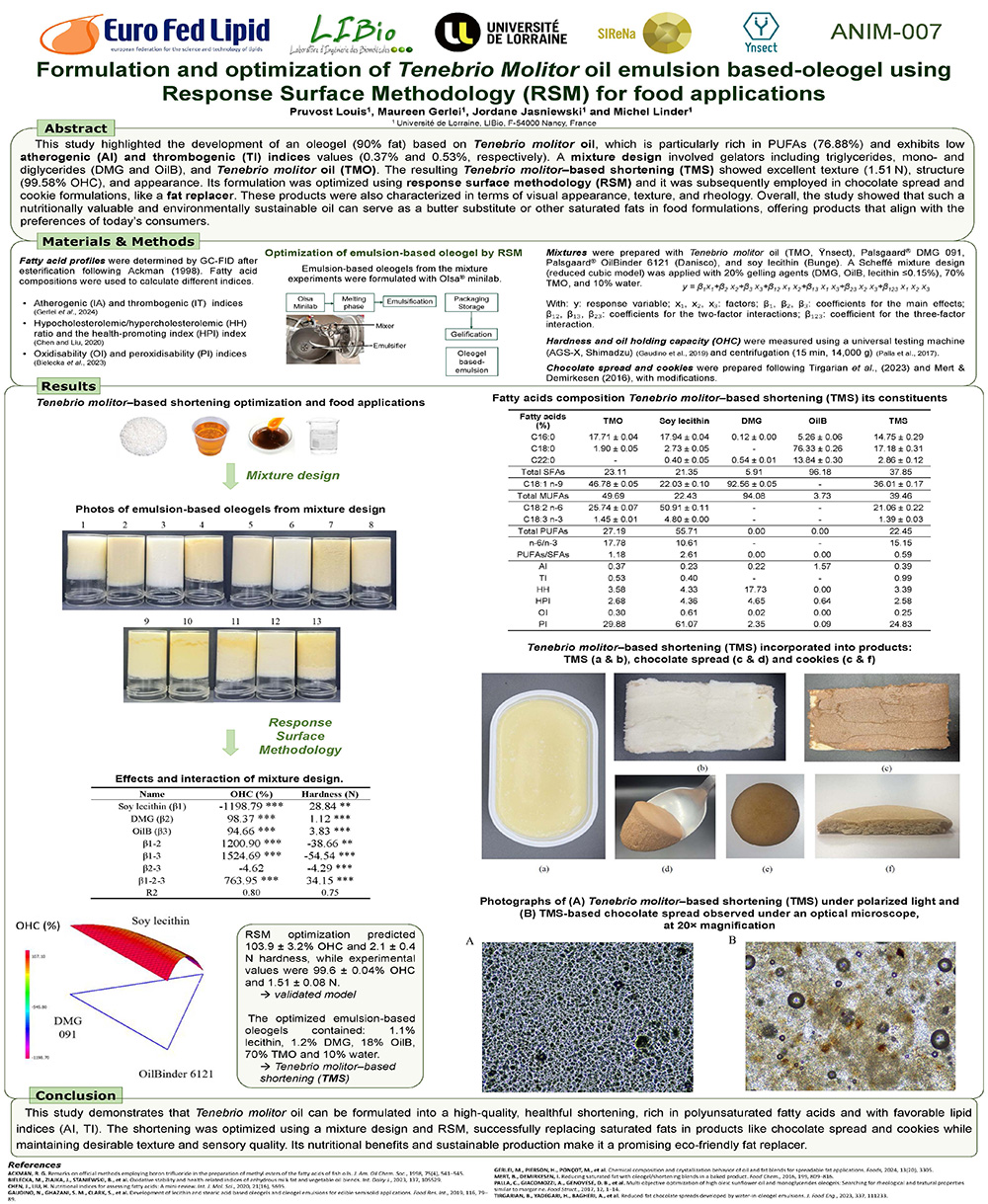Among emerging lipid sources, oil extracted from Tenebrio molitor is notable for its high content of unsaturated fatty acids and its favorable nutritional and environmental profile. Structuring this insect-derived oil into emulsion-based oleogels offers a promising way to valorize it for various food applications. This approach involves converting liquid oils into semi-solid systems using edible gelators that build a threedimensional network. An oleogelator acts as a structuring agent, enabling the formation of a thermoreversible lipid matrix with viscoelastic properties.
Emulsion-based oleogels are an innovative fat-structuring solution for the food industry, providing healthier alternatives to saturated and hydrogenated fats. They are particularly relevant for bakery products, spreads, and chocolate formulations, as they maintain key techno-functional properties such as spreadability, plasticity, and thermal stability. By substituting imported exotic fats like palm oil, these systems help limit deforestation, reduce greenhouse gas emissions, and lessen the environmental impact of fat production.
The objective of this study is to formulate emulsion-based oleogels containing 90% Tenebrio molitor oil obtained through a green process, using a complex lipid gelator system composed of monoglycerides, diglycerides, triglycerides and lecithin. The formulation process was optimized using a mixture design coupled with Response Surface Methodology (RSM) to determine the ideal ratios of each component in order to obtain a stable and functional texture. The optimized emulsion based-oleogel formulation was then applied to the development of cookies and chocolate spreads, demonstrating its potential as a sustainable and healthier fat substitute for food applications.
